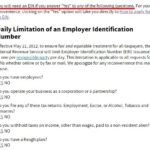When an individual obtains any sort of personal or financial information of another person and uses it to commit fraud, it is termed identity theft. One of the basic questions at this time is ‘what phone number can I call regarding identity theft issues for my tax return?’.
These frauds can include illegal purchases, business dealings, and filing for tax claims. This leaves the victim with a damaged reputation, finances, and credit.
The Internal Revenue Service (IRS) has been working to curb identity theft and has made it their priority since 2014. Currently, the IRS has over 3,000 people to help with identity theft cases. They have trained over 35,000 employees to identify identity theft and aid those who have become a victim of it.
How do identity thieves find people’s IDs?
Contents
The compromising of bank account numbers, credit card numbers and social security numbers are cases of identity theft.
The traditional thieves usually go through bins for account and credit card statements while other technologically advanced methods include stealing information from a corporate database.
If these people get their hands over an individual’s personal information, then they can potentially ruin people’s reputations and make their lives worse.
The theft of identity has increased over the years as people became more technologically dependent. Public records, malware, fraud texts, social media ads, and others are used to steal data too.
How to identify whether one is being a victim of identity theft?
In many cases, it is only after the IRS informs the victims, do people get to know that their personal data has been stolen. However, one can keep an eye on their data vigilantly and see for any fluctuations such as:
- Receiving a letter from the IRS regarding a tax return that was not filed by the individual.
- Unable to file taxes online due to claims of a duplicate social security number popping on the screen.
- Receiving a tax statement that has not been requested by the individual.
- IRS notice provided to an individual that an online account has been created using their name.
- IRS notice when the current account is used by the individual has been disabled for not taking any action or has been accessed recently.
- Additional tax notice from the IRS or a notice that action is being taken against the individual for not filing their tax returns.
- One can also request in IRS records and notice if they have received payments from an employer they have never worked for.
On the official IRS website, it is stated that one can find they are a victim of identity theft in several ways.
The highest probability of discovering this is when the individual files their taxes. In such cases, the IRS sends a letter stating that someone has already filed a return using the individual’s identity or has filed more than one return.
A worse way to find out about identity theft is when the individual has not filed taxes for a year. This implies that the IRS believes the individual owes them money. This can happen when one learns about their ‘refund offset’ or has a ‘balance due’ and the IRS is collecting money for the same.
In such situations, do not hesitate to act. Report to the concerned authorities about the stolen identity. IRS has its own specialized unit for identity theft and has a form that the individuals can fill to report the case.
If one believes that they are a victim of identity theft, where can they call?
If the individual suspects that they are a victim of identity theft, but have not received any notice from the IRS, reach out to the IRS’ Specialized Unit for Identity Protection at 800-908-4490. Additionally, fill the Form 14039 or the IRS Identity Theft Affidavit. Specify the situation and be completely honest about it.
For further security, one can reach out to other authorities apart from the IRS.
- Visit the Federal Trade Commission website.
- On the FTC, the individual can report the theft of identity.
- Go to the nearest/local police station and file a report regarding the theft.
- One can also contact the FTC through their hotline: 877-438-4338/TTY 866-653-4261. (These were created especially for identity theft).
- Reach out to the 3 major credit bureaus and contact their fraud dept:
- www.experian.com, 888-397-3742: EXPERIAN
- www.transunion.com, 800-680-7289: TRANSUNION
- www.equifax.com, 800-525-6285: EQUIFAX
Do not forget to close any account that one suspects has been opened by fraud or has been tampered with.
More information about Form 14039
This is the Identity Theft Affidavit by the IRS because of growing cases of identity theft. One can download the form from the IRS website. You can also click here to directly download Form 14039.
Fill out the form, specify the details, and mail or fax it to the IRS. The form is also available in Spanish. One needs to attach IDs such as a passport, driver’s license (issued in the US), or social security card. Also, any U.S Federal or State-issued ID is acceptable.
Additional protection from identity theft
- While no one is fully safe from the technological risks posed to their personal data, they can take some additional measures to ensure that their data remains secure.
- The people should not carry their official documents that have their social security numbers or taxpayer’s ID number.
- Shred any type of document that holds such information if one does not need it. According to the recommendations, one uses a protection service for identity theft. Always check the credit, if not frequently, at least once a year.
- Update the passwords, do not pick simple ones like 12345, birth date, etc.
- Do not pass any information to anyone unknown over the phone or on the internet.
Identity theft is one of the fastest-growing crimes in the United States. Even with all the preventive measures, one can fall a victim to identity theft.
Individuals can reach out to Internal Revenue Service as well as Federal Trade Commission to report the crime and remain in contact with them throughout. Close any tampered account and disable those which have been created using one’s name.





